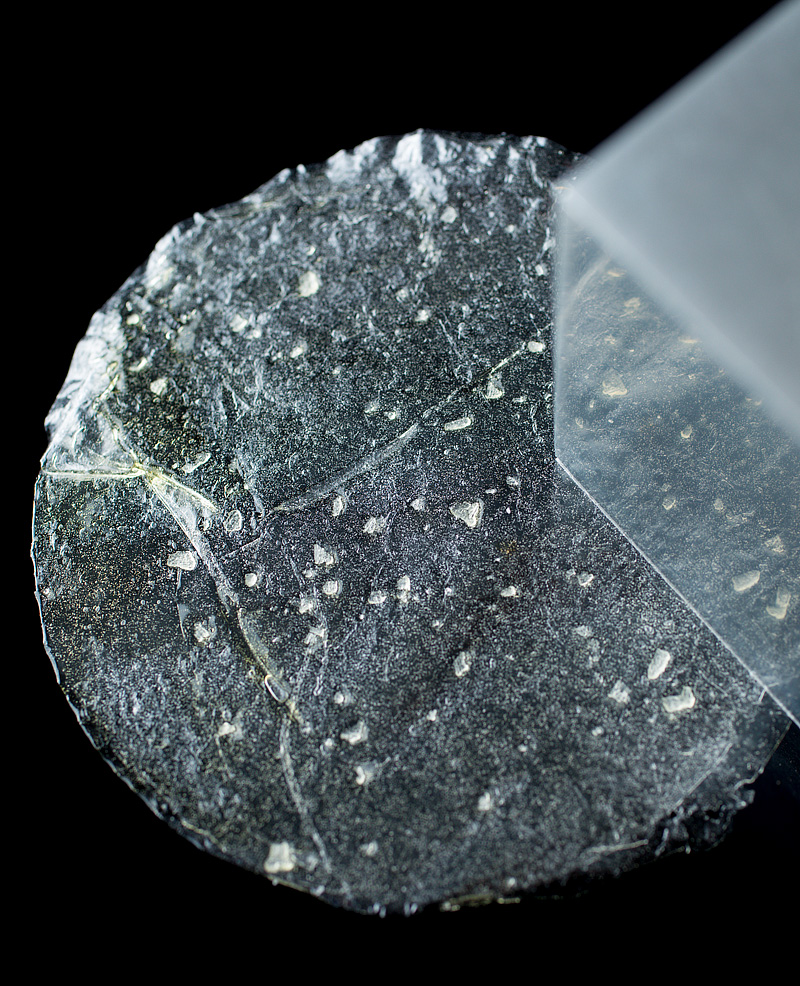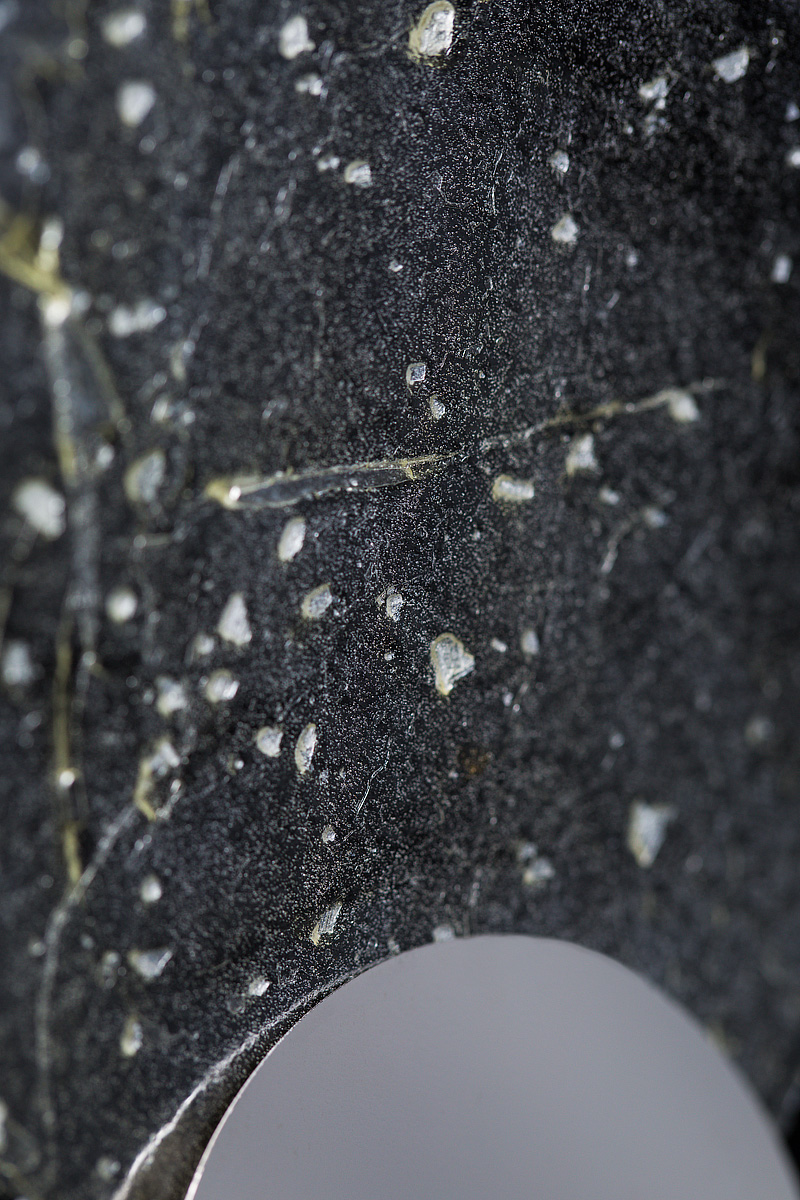Working through recipes from the elBulli collection is exactly as interesting to me as working through the Alinea cookbook; as I drift amongst the recipes, I can start to see small glimmers of patterns in the recipes. This, in turn, ever so slowly brings into focus the evolving interests of the chefs as they design each dish.
Where Alinea/Next flatly refuse to repeat anything over the course of a single meal, elBulli seems happy to showcase a new ingredient the chefs found an interest in. One of the many ingredient stories is that of “obulato”, an incredibly-thin sheet of edible ‘paper’ made from potato starch. As far as I can tell, this paper is most-widely used to wrap or otherwise envelope bad-tasting medicine in Asian countries (mostly, I think, Japan).
I first came across mention of it when reading Life, On The Line, in which Achatz describes (some 10+ years ago, in his days at Trio, pre-Alinea) using the paper to create a postage-stamp-sized bite of ‘pizza’. I made an attempt to replicate this dish several years ago, using pre-formed Oblate envelopes that I found at Tokyo Fish Market up in Berkeley. I found the paper pretty cool to work with, though the small form factor it was packaged in wasn’t the easiest to work in. An attempt to make my own–armed with a bag of potato starch flour, a few tablespoons of water, and my dehydrator–ended in failure.
Sifting through the elBulli books, there are dozens of recipes that rely on Obulato’s magical dissolving properties (the short story: the starch paper collapses/dissolves quickly in water, but not in oils/fats). After reading through one of these recently, I, on a lark, tried searching around for obulato, hoping that maybe the globalization of pretty much everything might make it easier to find some. Sure enough, one of the first links was to a (single) listing for the paper on Amazon.
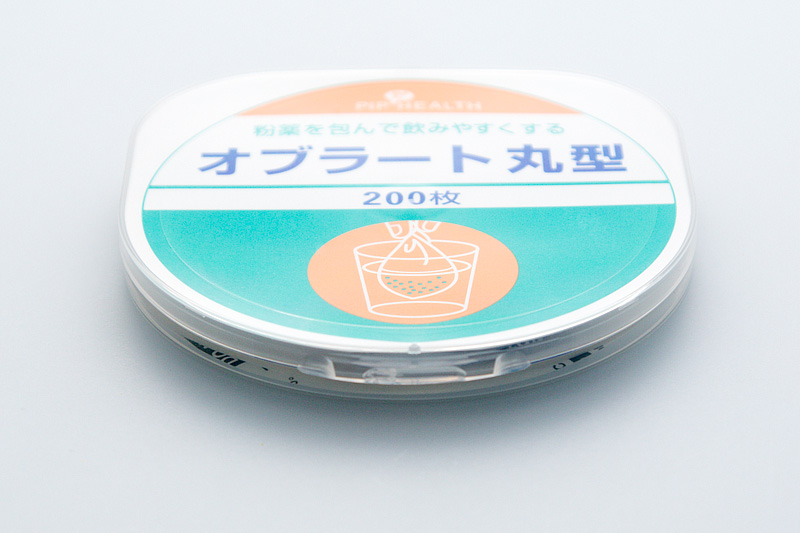
I eagerly ordered some, and when it showed up a couple days later I was amped to find it the perfect size for this recipe. The sheets themselves are incredibly thin, nearly invisible (it’s easy to lose them, and easy to pick up about 10 of them when you think/intend to grab only one).
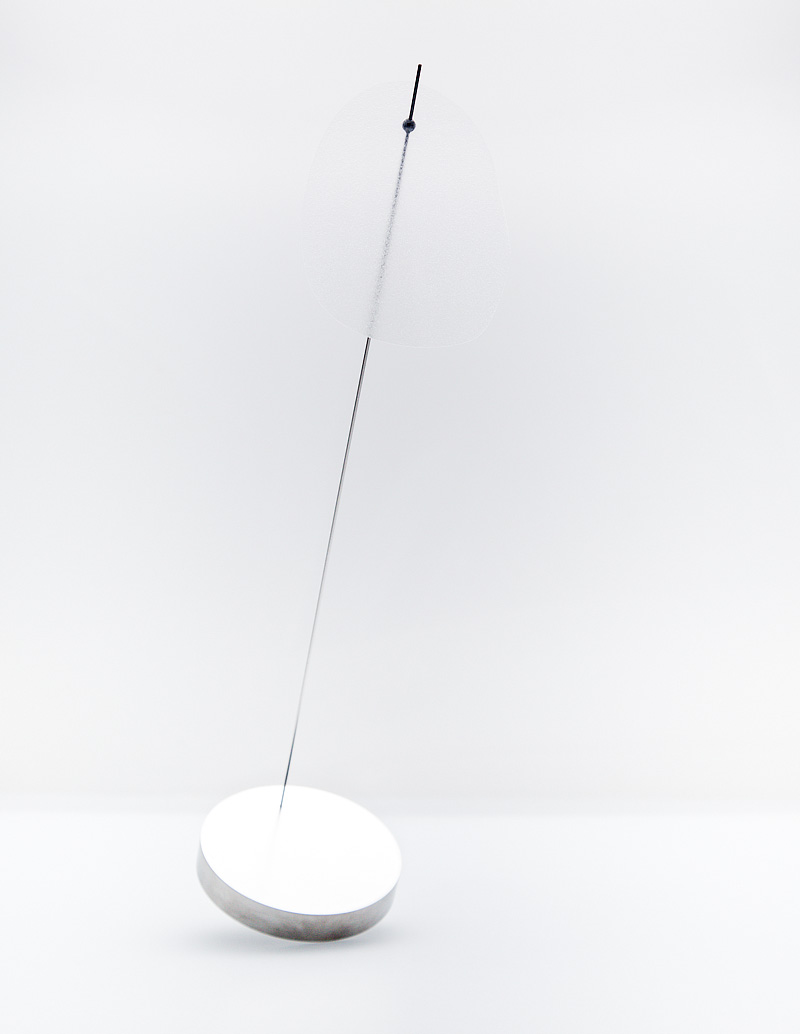
For this recipe, a handful of these sheets are laid out on a Silpat, then brushed with simple syrup (at which point they sort of collapse) before being topped with a second sheet, forming sort of a simple syrup oblate sandwich. These sandwiches are then baked at 350F for a few minutes, to evaporate the water and lightly-caramelize the sugar. At this point, the sheets take on an impossibly-delicate, brittle texture that I can only really describe as “crispy tracing paper”…but even tracing paper is too thick for this analogy. Removing these discs from the silpat without shattering them took me several tries to get the hang of, and even then, the discs remained almost invisible.
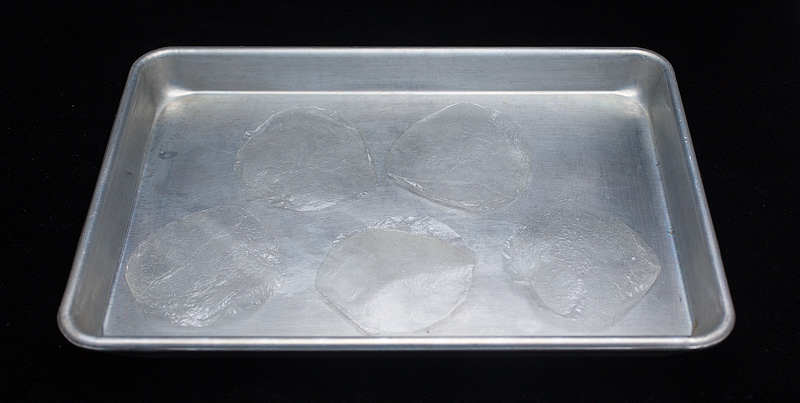
These discs were brushed ever-so-gently with olive oil, and here’s where the magic is: because the discs don’t dissolve in the presence of fat, they hold their crispy texture. The chips are seasoned with a few flakes of salt, then presented as a thin, crispy bite to munch on.
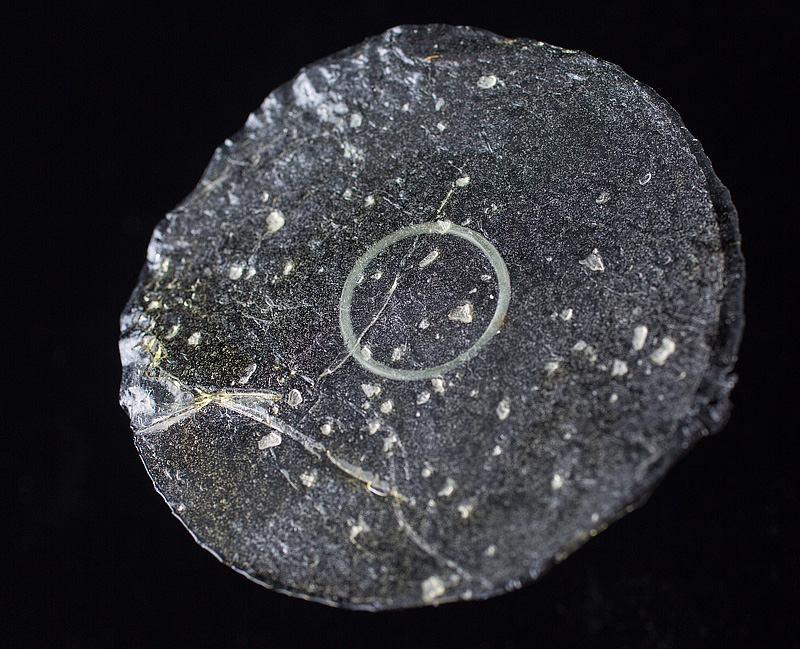
From a flavor perspective, the dish can only really be as good as the olive oil that’s brushed on the chips; the chips themselves offer a sweet and salt undertone to the oil, and it’s clear that the bite was conceptualized around what must have been a fairly compelling bottle of olive oil to the chefs at elBulli.
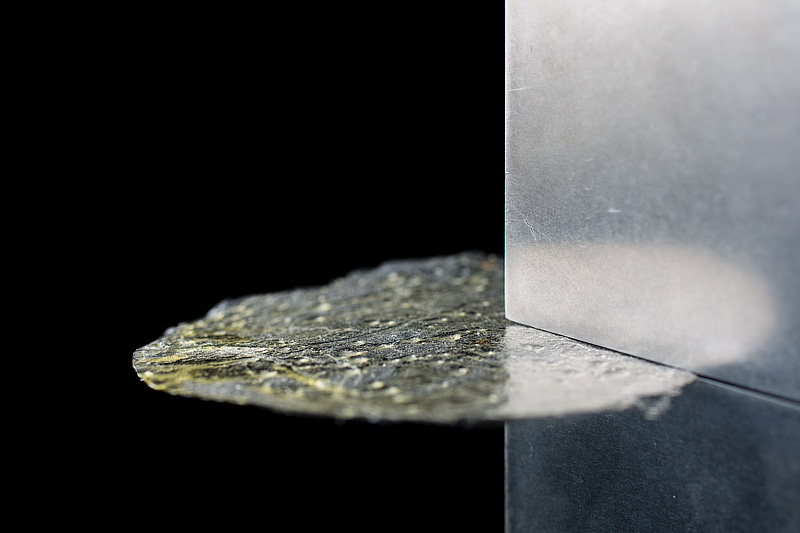
The real interest for me, however, was the texture of this thing. I’ve never tasted anything quite like it before; it’s as almost ‘not there’ as something can possibly be while still offering an admirably-staunch crispy crunch when bitten. I wish all potato chips could be this airy and thin.
